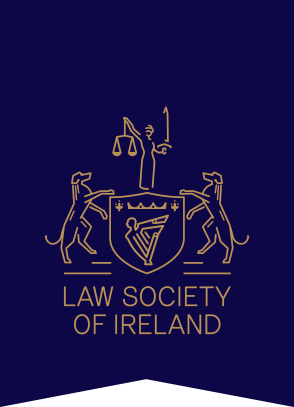Wills and the requirements for making a valid will
 Deciding what happens to our assets when we die is a task most of us would prefer avoiding if at all possible. In fact the majority of us have old wills lying in solicitor’s offices that are no longer applicable and need to be updated. As we all know a will is a declaration in writing of a man or woman’s wishes for the distribution of their property after their death. It need not be in any special form but it must comply with the requirements of the Succession Act 1965.
Deciding what happens to our assets when we die is a task most of us would prefer avoiding if at all possible. In fact the majority of us have old wills lying in solicitor’s offices that are no longer applicable and need to be updated. As we all know a will is a declaration in writing of a man or woman’s wishes for the distribution of their property after their death. It need not be in any special form but it must comply with the requirements of the Succession Act 1965.
What are the requirements of a valid will?
- It must be in writing;
- The person making the Will must be over 18 or be, or have been married;
- He or she must be of “sound disposing mind”;
- He or she must sign their name, make their mark or acknowledge their signature in the presence of two witnesses, present together;
- His or her signature must be at the end of the will;
- The two witnesses must sign their names in the presence of the person doing the will.
What form should a will be in?
- It should contain the name and address of the person making the will;
- It should state that all previous wills no longer count or are revoked;
- It should appoint Executors; (one will suffice but two is preferable)
- It should contain clauses dealing with how you want to dispose of your assets;
- There should be a clause dealing with how the remainder or residue of your assets is to be dealt with;
- It should be dated;
- It should contain a signature of the person making the will;
- It should contain a clause known as an “attestation clause”; such as “signed by the testator in the presence of us and then signed by us in the presence of the testator”;
- Finally it should contain signatures of the witnesses, with their addresses and descriptions.
Witnesses
There are certain rules surrounding witnesses. Firstly if someone is to benefit under a will and they witness the same will, then their gift is void but the will still stands. Also it is not good enough for a witness to acknowledge the signature of someone who has done their will. Presence means visual presence. Finally there are no age limits on witnesses.
Executors
More than one Executor should be appointed. The persons appointed should be clearly identifiable by full name, address, description and relationship to the deceased (if any). They must be over 18 and not suffering from any legal disability. The recent decision in Scally v Rhatigan [2012] IEHC 140 (High Court) Laffoy J. highlighted the fact that it is important to choose the right Executor. Your Executor must be trustworthy and must understand how you want your estate to be administered. It is crucial that there is no potential conflict of interest.
Cancelling or Revoking a will
A will can be cancelled or revoked by a number of means including by another will or by subsequent marriage (unless it is made in contemplation of that marriage). It can also be revoked by destruction by the person who made the will or by someone in his or her presence and by his or her direction to destroy it.
Proofing a will
A will is proved when it is admitted to proof in the Probate Office or District Probate Registry, without any litigation.
In my next article I will explain why it is important to make a will.
Niall Colgan is a practising solicitor based in Cork City
Tags: making a will










